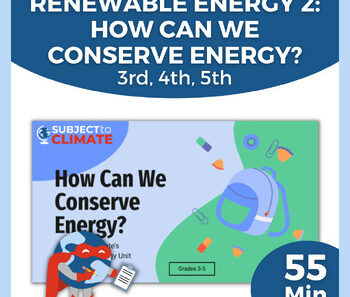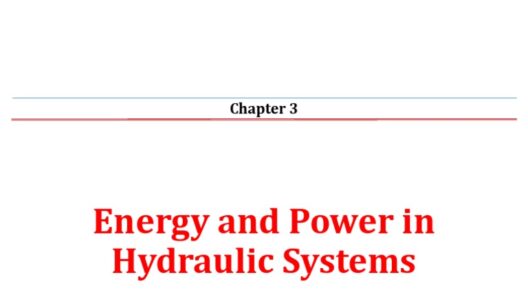Energy conservation refers to the practice of using less energy by employing more efficient technologies or practices. It is a fundamental principle in science, particularly in the fields of physics and environmental science. The essential idea behind energy conservation is that by reducing energy consumption, individuals and organizations can minimize their carbon footprint and mitigate the adverse effects of global warming.
Understanding energy conservation starts with recognizing the various forms of energy. Energy exists in multiple forms, including thermal, kinetic, potential, chemical, and nuclear energy. The law of conservation of energy states that energy cannot be created or destroyed; it can only change from one form to another. This principle is pivotal in the study of thermodynamics and emphasizes the importance of efficiency in energy usage.
The implications of energy conservation extend far beyond simply saving money on utility bills. From a scientific perspective, conservation plays a critical role in sustainable development. It encourages the responsible management of finite resources, thereby ensuring ecological balance. This balance is vital for the health of our planet and serves as a safeguard for future generations.
To grasp the significance of energy conservation within the scientific community, one must explore various modalities where these principles are applied.
1. Renewable Energy Sources
One of the most significant developments in energy conservation is the transition from nonrenewable to renewable energy sources. Nonrenewable sources, such as fossil fuels, contribute significantly to greenhouse gas emissions; thus, the shift toward solar, wind, and hydroelectric power is crucial. Renewable energy sources are sustainable and have a minimal environmental impact. The transition is often bolstered by advancements in technology, making renewable energy more accessible and efficient.
2. Energy Efficiency Technologies
Energy-efficient technologies are essential sacrifices of modern science that revolutionize how energy is consumed. These include everything from compact fluorescent lamps (CFLs) to smart home systems that optimize energy usage. Energy efficiency reduces the energy required for a specific task, whether heating a home or powering a device, which directly correlates with energy conservation.
3. Behavioral Changes
In addition to technological advancements, individual behaviors play a fundamental role in energy conservation. Simple actions, such as turning off lights when leaving a room, unplugging devices not in use, and utilizing public transportation, contribute to significant energy savings. Educational programs aimed at raising awareness regarding energy conservation can cultivate a culture of sustainability. Such programs are invaluable not only in homes but also in educational institutions and workplaces.
4. Scientific Research and Policy Implementation
Scientific research continues to pioneer innovative solutions for energy conservation. Researchers analyze vast amounts of data to enhance energy efficiency and reduce waste. Policy frameworks and regulations play a crucial role in promoting energy-conscious practices. Governments worldwide have enacted laws and incentives to foster renewable energy projects and encourage citizens to adopt energy-saving measures. Thus, the confluence of scientific inquiry and policy can significantly impact energy consumption patterns.
5. The Role of the Built Environment
The built environment represents a substantial percentage of total energy consumption globally; hence, energy conservation in architecture and urban planning is paramount. Green building certifications, such as LEED (Leadership in Energy and Environmental Design), encourage sustainable practices in construction and renovation. Incorporating elements like natural lighting, passive solar design, and efficient insulation can drastically reduce energy demands. Such architectural principles can drastically diminish the reliance on artificial heating and cooling systems, leading to further energy conservation.
6. The Importance of Insulation and Energy Audits
Insulation is a key factor in maintaining energy efficiency within buildings. High-quality insulation minimizes heat loss during winter and keeps spaces cooler in summer, reducing the load on heating and cooling systems. Conducting energy audits allows for a thorough evaluation of a building’s energy usage. These audits identify areas of inefficiency and provide actionable steps to enhance energy conservation efforts.
7. The Impact of Transportation
Transportation is one of the largest consumers of energy, highlighting another critical area for conservation efforts. Innovations in electric vehicles and public transportation systems significantly reduce reliance on fossil fuels. Alternative fuels, such as biofuels and hydrogen, reflect a promising direction toward sustainable transportation. Policy measures, such as improving public transit infrastructure and promoting carpooling, are influential strategies in reducing energy consumption in transport.
8. Global Perspective on Energy Conservation
Globally, energy conservation practices vary widely based on regional needs and resources. Developed nations often focus on technological advances and regulatory measures, whereas developing nations may prioritize increases in energy accessibility and efficiency. Understanding these differences is essential for creating effective international cooperation strategies to promote sustainable energy practices worldwide.
9. Conclusion: A Collective Responsibility
Energy conservation is not merely an individual concern; it is a collective responsibility requiring active participation from all societal sectors. Governments, industries, communities, and individuals must unite to deploy innovative technologies, educate one another on energy-saving practices, and engage in research to foster sustainable energy solutions. As the world grapples with escalating environmental challenges, energy conservation remains a beacon guiding us toward a more sustainable and harmonious existence with our planet.
As we look forward, embracing energy conservation will not only reflect our commitment to environmental stewardship but will also pave the way for a future where energy is used judiciously and sustainably for the benefit of all.







